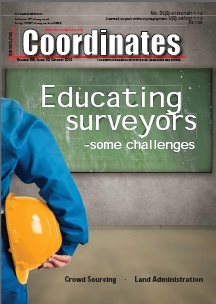A Soyuz ST-B launcher carrying two Galileo in-orbit validation (IOV) satellites took off as scheduled at 18:15 GMT (20:15 CEST; 2:15 p.m. EDT) on October 12 from the European Spaceport in French Guiana. All the stages of the Soyuz vehicle performed as planned and the Fregat-MT upper stage released the Galileo satellites into their targeted orbit close to 23,200 kilometer altitude, three hours 45 minutes after liftoff.
Indian Space Research Organisation (ISRO) plans to launch 58 space missions, including sending spacecraft to moon and Mars, an exclusive satellite to keep a round-the-clock watch on the country and deploy 500 transponders in the next fi ve years. The space agency also aims to deploy its own version of the GPS by putting into orbit a constellation of seven satellites which would form the Indian Regional Navigational Satellite System (IRNSS).
According to Microsoft, some products sold by Google-owned Motorola Mobility infringe on a patent that describes a method of obtaining the map from one database, resource information such as Starbucks locations from a second database, and overlaying the two sets of data.
The latest satellite in China’s Beidou-2 navigation system has been launched in Xichang. The system is expected to start providing positioning and navigation services for China and neighboring areas by the end of this year. And once the system is fully established by 2020, it will play a major role in the country’s economic development and national security.
November 2012
8th Fig Regional Conference,
26 – 29 November,
Montevideo, Uruguay,
www.fig.net/uruguay;
The 33rd Asian Conference on Remote Sensing,
26 – 30, November,
Pattaya, Thailand,
http://acrs2012.gistda.or.th;

Today global navigation systems have become a part of our everyday life. It is part of many useful things and assisted people in many ways. It is part of the marine, aircraft and traffic issues – from private user up to logistic cooperation. Also it is used in agricultural companies for precise farming as well as for information systems in all kind of tasks like geology, archeology, hydrology and a lot more. In the sector of engineering, it supports and guides the construction machines.

Imagine a country without any basic administration of land – their key asset. Imagine that tenure to land and property cannot be secured, and that mortgage loans cannot be established as a basis for property improvement. Imagine that the use and development of land is not controlled through overallplanning policies and regulations.













 (5.00 out of 5)
(5.00 out of 5)